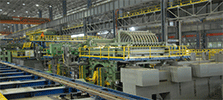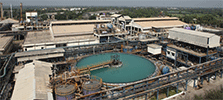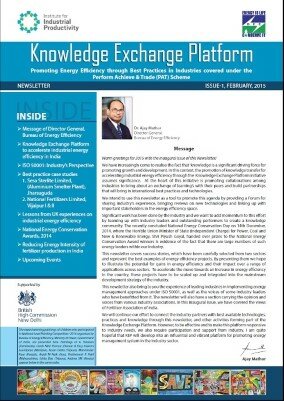In one of its ongoing programs, the Institute for Industrial Productivity (IIP) in partnership with National Productivity Council (NPC) has launched an initiative to promote recovery of low grade waste heat in select energy intensive Indian industries. The temperature at which low grade heat is available poses significant technical obstacles because of low effectiveness of heat recovery at such temperatures.

Corrosion of heat exchanger components and their life, high cost of heat exchangers and difficulties in transporting this low grade heat over large distances are other significant barriers in its wide spread exploitation. Successfully addressing these barriers holds the promise to unlock the vast potential of this resource, which will not only reduce fossil fuel usage but also lead to significant greenhouse gas mitigation.
In order to brainstorm on the subject, IIP organized a meeting at India Habitat Centre, New Delhi, on November 13, 2013, which had participation from three industry sectors namely Fertilizer, Cement and Glass. The meeting focused on three key issues: (a) the nature of waste heat (low to medium grade) that is available, (b) the reasons for the industry not to be able to exploit this waste heat presently, and (3) possible technological choices that can be explored in this regard. The meeting also provided a platform for exchange of information across these sectors and the possibility of cross sectoral learning.
With regard to the glass industry, it was felt that the final exit temperatures from Regenerative as well as Recuperative melting furnaces are sufficiently high to encourage power generation. It has been estimated that utilizing this resource- which is presently being wasted, provides opportunity for using a screw expander for power generation with a potential of more than 25 MW. The discussions also looked at the possibility of utilizing this waste heat to meet the thermal energy requirements of smaller furnaces (e.g. lehrs) and the need to clearly establish the comparative advantages and financial viabilities of these competing possibilities. The glass industry representatives also shared their interest in visiting cement plants that have already installed waste heat recovery systems and to learn more about their experience and learning. IIP offered help to the Glass industry representatives by providing the facilitation services in terms of linking them up with Cement Manufacturers Association in this regard.
The next phase of the project would involve carrying out pre-feasibility studies in representative units in these industry sectors, for which the project team would get in touch with interested units who are willing to be a partner for this initiative.


